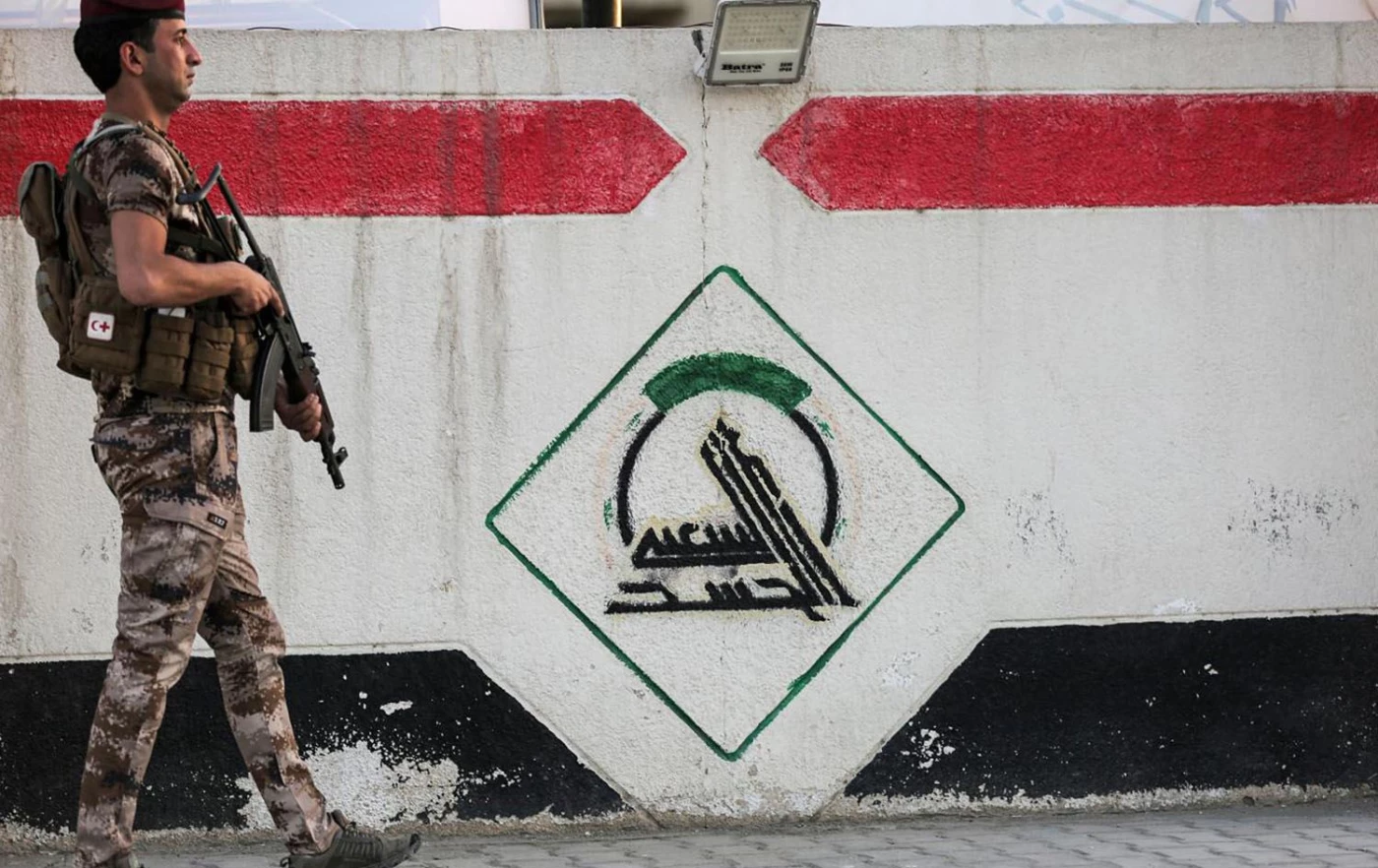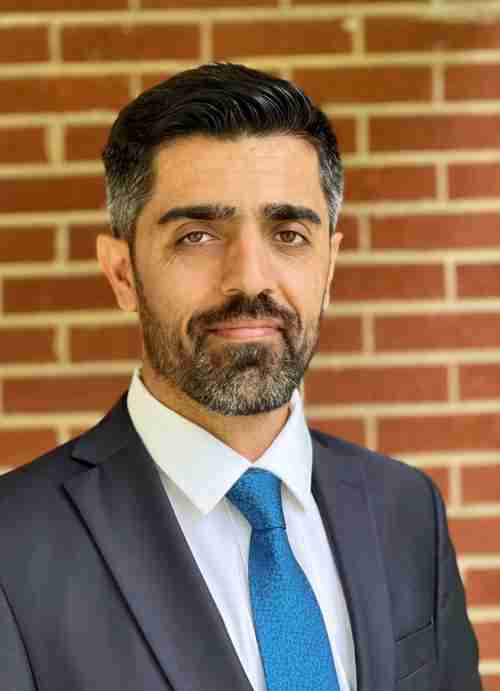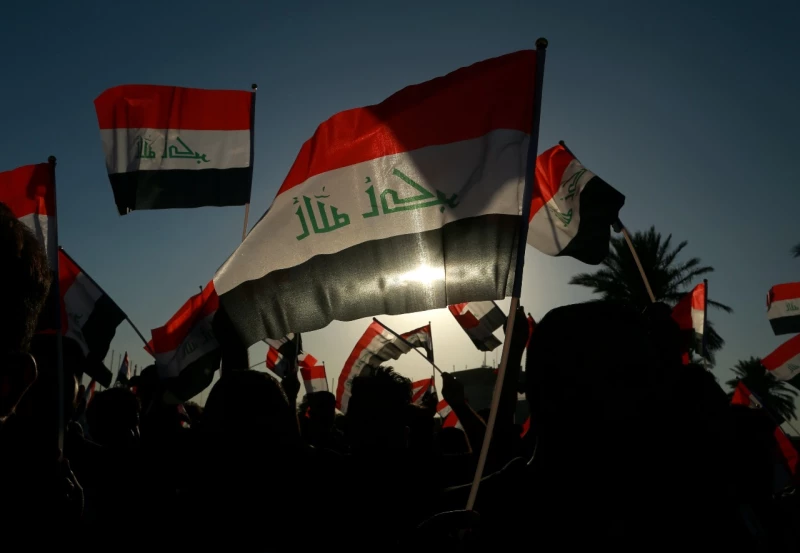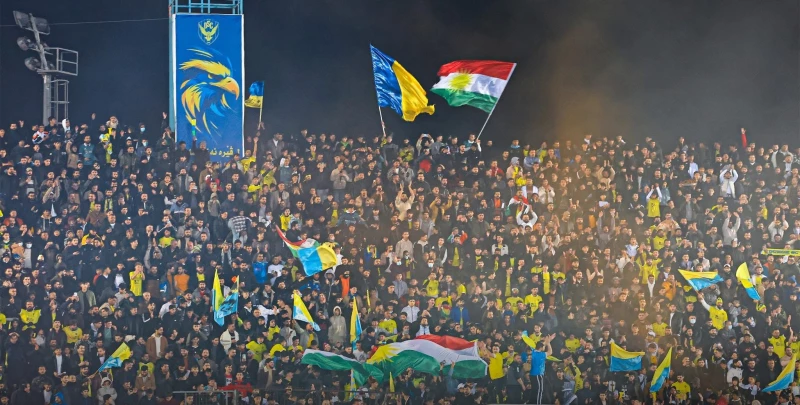Iraq is edging toward a domestic and geopolitical crisis as powerful Shiite factions push to pass two pieces of legislation that would formalize and entrench the Popular Mobilization Forces (PMF) as a permanent arm of Iraq’s military and political apparatus. If passed, the main bill—the Popular Mobilization Commission (PMC) Law—would institutionalize the pro-Iran armed network at the core of Iraq’s security establishment, sharply escalating tensions with the United States and potentially triggering economic retaliation that could cripple the country’s fragile economy. A second bill, under consideration alongside the PMC Law, addresses retirement and service regulations for PMF personnel, further signalling plans for long-term integration.
The PMF was formed in 2014 during Iraq’s existential war against the Islamic State (ISIS), following a call by Shiite Grand Ayatollah Ali al-Sistani, as various mostly Shiite militias coalesced into a single fighting force. It was granted official status through a 2016 executive decree by then-Prime Minister Haider al-Abadi and a subsequent law passed by the Iraqi Parliament in the same year. Many of its key factions—including Kata’ib Hezbollah, Asa’ib Ahl al-Haq, the Badr Organization, and Kata’ib Imam Ali—maintain close ties to Iran, with some tracing their origins to the 1980s under Iranian supervision. At around 240,000 strong, the PMF now has an annual budget of approximately $3.5 billion.
The proposed PMC Law goes far beyond formal recognition, which it currently enjoys. It would grant the PMF greater financial independence, expanded legal authority, and boost its ability to grow its economic empire. Politically, it would give the PMF a deeper foothold in state affairs, potentially allowing it to intervene in disputes and project influence across Iraq’s institutions as the protector of the post-2003 regime in Iraq. This mimics the model under which the Islamic Revolutionary Guard Corps in Iran operates. Many of its factions already have political wings represented in parliament and are integral to the ruling Shiite Coordination Framework.
Of Iraq’s four main security organs, two are already fully dominated by pro-Iran forces: the PMF and the Federal Police, the latter of which has long been aligned with the Badr Organization—Iran’s oldest Iraqi proxy. The Counter-Terrorism Service (CTS) has long been the country's most capable and nonpartisan force, but under Prime Minister Mohammed Shia al-Sudani’s government since 2022, even the CTS has seen creeping influence from pro-Iran actors. The Iraqi army has also generally sought to maintain and project a non-sectarian character.
The PMC law was drafted by the Council of Ministers, presided over by Prime Minister Mohammed Shia al-Sudani—who also serves as Iraq’s Commander in Chief. Parliament held the bill’s first reading on March 24 and its second on July 16. With both readings complete, the law is now eligible for a final vote—pending the presence of the required quorum of 166 MPs. For the second reading, First Deputy Speaker Muhsin al-Mandalawi, a Shiite, used a procedural maneuver to push the bill forward by adding it to the agenda only after quorum had been secured for unrelated legislation. Many Kurdish and Sunni MPs exited the session upon learning of the addition, but Mandalawi proceeded nonetheless.
This is not merely an internal power struggle. The legislation is enmeshed in the broader US-Iran rivalry. Washington has made its opposition to the bill unequivocally clear. According to The New Region's reporting, Washington, in a strongly worded nine-point letter to Baghdad in July, threatened to cut all security assistance to Iraq, designate the PMF as a terrorist organization, and impose sanctions on Iraq’s oil sector. In a 22 July phone call with Sudani, US Secretary of State Marco Rubio “reiterated serious US concerns” and warned that the law would “institutionalize Iranian influence and armed terrorist groups undermining Iraq’s sovereignty.”
Sudani attempted to calm US fears in a July 29 interview with the Associated Press, arguing that the law would place weapons under state control: “Security agencies must operate under laws and be subject to them and be held accountable,” he said. However, many would have a hard time trusting these words, as successive Iraqi governments have failed to hold PMF factions accountable for attacks on US forces, the Kurdistan Region, Israel, Jordan, and Gulf countries—as well as for assassinations of dissidents and suppression of protests.
While internal Shiite dynamics in Iraq have played an important role in advancing the PMC Law, the timing of this legislative push also underscores its broader geopolitical significance. The second reading came just weeks after the 12-Day War between Iran and Israel, during which Iran suffered major losses. But prior to that, Iran’s regional axis—from Gaza to Lebanon and Syria—had been seriously weakened by a relentless Israeli military campaign since October 2023. Amid these setbacks, Tehran is eager to showcase its enduring influence, particularly in Iraq. Enshrining the PMF into law would mark Iran’s first successful long-term integration of a proxy force into a sovereign state’s formal military structure.
This would be no symbolic win. Given this context, Washington views the PMC Law as a strategic gift to Tehran. The passage of the law would almost certainly deepen the rift between the Shiite-led government and the United States. That confrontation might not manifest in military terms—though that risk cannot be dismissed, especially amid a future regional conflict—but the economic and diplomatic fallout would likely be severe. MP Karwan Yarwais recently told Kurdish Zoom TV that Washington had threatened sweeping financial sanctions that could trigger a “devaluation of the Iraqi dinar.” That would be a crushing blow for a government already struggling to meet the monthly payroll of nearly nine million civil servants, retirees, and welfare recipients. Shiite MP Hussein Arab likewise warned of threats from the US, UK, and Gulf states to sanction Iraq’s banking system into collapse.
While Gulf governments have not publicly confirmed such intentions, their apprehension is understandable. Several PMF factions have ties to Yemen’s Houthi movement and were implicated in prior attacks on Saudi and Gulf interests. Institutionalizing those same groups into Iraq’s military would be seen across the Gulf as a serious security threat.
Some pragmatic Shiite factions appear hesitant, mindful of the risk of provoking Washington. Yet they also view the PMF as the central guarantor of the post-2003 political order. From their standpoint, they face a trade-off: antagonize the US by passing the law or undermine the regime’s foundations by failing to institutionalize the PMF for the long term. To navigate this, they may attempt to quietly support the bill while publicly keeping their distance. Coming ahead of the November elections, passing the PMC Law would also be a strategic win for Shiite factions, galvanizing their base. Whether this turns out to be a zero-sum struggle or a managed confrontation depends on Baghdad and Shiite groups’ ability to get the law through while containing fallout with Washington. One possible path: push the law now, weather short-term backlash, and seek to repair ties with the US under a future administration—perhaps by offering parallel cooperation in less controversial and mutually beneficial areas such as economic and commercial development. Another option is to wait for a friendlier administration in Washington and push the law through at that point. Or perhaps the Shiite establishment’s game of ambivalence has run its course, and, as far as Washington is concerned, a moment of reckoning for the unruly factions within the PMF may be approaching.
The views expressed in this article are those of the writer and do not necessarily represent the position of The New Region's editorial team


 Facebook
Facebook
 LinkedIn
LinkedIn
 Telegram
Telegram
 X
X



